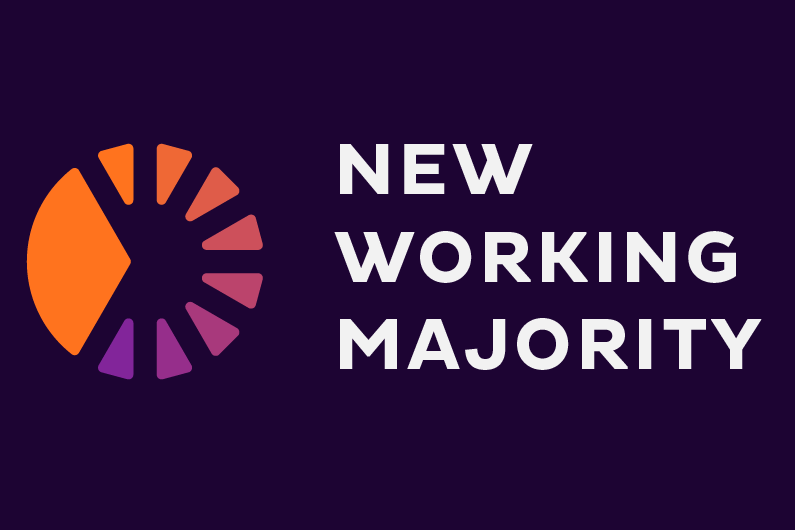We Need Bread and Roses, Too
New Working Majority (NWM) considers organizing to be a craft. We believe that the most powerful organizers thrive in environments that are centered around a conviction that everyone can learn this craft, and that we have a responsibility as organizers to always be training the next generation. In order for entry-level organizers (Novices and Apprentices) to grow into strategic campaigners, they need to develop in two areas –– learning the skills of organizing (represented below as Skills and ability) and developing a deeper understanding (represented below as Political awareness) of the political conditions in which they work, how to make sense of their opponents, and the history of organizing in their movement. The craft needs experienced people (Journeypeople and Masters) to impart both the technical skill of organizing, as well as the more theoretical and historical elements of the work.
Providing a mentoring and teaching environment requires senior staff to have the mental capacity and time to support their coworkers and supervisees consistently. It takes 10-15 years to grow an organizer into an experienced campaigner, to really instill the level of awareness that a Master level organizer needs. It is not a one- or two-year development cycle. Unfortunately, financial conditions in our field and political crises in our country have caused burnout that keeps many senior leaders working directly in programmatic activity instead of being able to step back and develop younger or more junior staff. Organizing groups need to commit to building an internal environment that supports training and mentoring, and funders need to better understand the important role that Journeypeople and Masters play in developing more junior staff.
Earlier this year, NWM launched a bilingual (English & Spanish) survey to help us understand salary trends in progressive movement organizations. Our desire to conduct this survey was motivated by our interest in giving our recruitment clients information about current salaries, but also (and more importantly) to raise awareness among funders and interested stakeholders about the ways that our movements are treating their staff. The survey was posted online and distributed via email and multiple other forms of digital outreach.
Kati Sipp, our firm’s founder, has been an organizer for over thirty years. Last year, when we were having our first internal discussions about this survey (and the larger conversation about pay equity from the bottom up), she told this story:
“Like many field folks, I started my life in the movement as a canvasser. In the early 90s, the minimum wage was $3.80/hour, and canvassers didn’t even get that—we had to organize in our canvasses to get paid minimum wage. I spent most of my 20s living on $16,000/year (or less), working in canvasses and electoral field operations, including as a canvass director and field manager for campaigns with dozens of staff under my supervision. I wasn’t a person who grew up with money, and I didn’t have a safety net—that $16,000 poverty wage was what I had to live on. I didn’t have health care until I was 26, when my partner’s parents offered to pay for it, because they were worried about me.
When I was 28, I got hired by the union (SEIU Local 715 in San Jose) as an entry level internal organizer; I was paid $40,000/year, and for the first time, I didn’t have to worry about how I was going to pay rent or buy groceries. I wasn’t rich, but I was financially stable for the first time. I want to make sure that our movement is giving every new organizer that sense of stability.”
That $40,000 Kati was paid 26 years ago in 1997 as an entry level union organizer now has the purchasing power of $76,855. Why are we still offering people starting out in the movement salaries of $40,000 or $50,000 instead of $60,000 or $70,000? Where has that $35,000 in buying power gone over the years? We believe that it is time to start asking questions about the entirety of the pay scale in order to create movement jobs where every person is paid the wage they need to thrive.
We offer this report to share our findings and to add insight to the conversation that many others have started in projects like All Due Respect, Vega Mala Consulting and in the unionization efforts that many progressive organizers and campaign staff have engaged in over the past five years. We believe that our movement is stronger when we offer financial stability to everyone who works in our organizations. We intend to continue this survey on an annual basis to see whether pay in our industry begins to shift more towards a culture of care and sustainability for all, not just for some.

